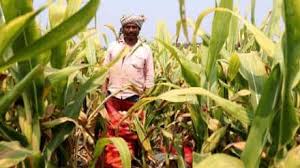Budget 2024: India is basically an agriculture-based economy. However, governments have not done as much work on the agriculture sector as they should. After the ruling party’s performance in the recent Lok Sabha elections was less than expected, farmers have now come into focus. In the recent days, many announcements have also been made in favor of farmers. The Maharashtra government has announced a power subsidy of Rs 14,000 crore to farmers, an incentive of Rs 1,300 crore for paddy producers and a subsidy of about Rs 200 crore for milk producers. Apart from this, the Telangana government has proposed loan waiver for farmers. After this, farmers in Maharashtra, Jharkhand and Punjab are also demanding agricultural loan waiver. These are all attractive measures, but these are not a sustainable solution to improve the agricultural economy. India’s agriculture sector is struggling and once again has high expectations from the budget. Let’s know what farmers expect from this budget.
Income support for farmers

Initiatives like the PM Kisan Yojana, which provides income support of Rs 6,000 per year to farmer families across the country and an increase in the minimum support price (MPS) of crops are essential for farmer welfare. However, the goal of doubling farmers’ income has not been achieved yet. Therefore, the 2024 budget requires a sustainable framework that helps in increasing farmers’ income continuously and does not require frequent funding from the government.
Loans and Insurance
The government provides concessional institutional loans to farmers through the Kisan Credit Card (KCC) at 4 percent annual interest. The financial budget also allocates funds for the Pradhan Mantri Fasal Bima Yojana and provides crop insurance cover to farmers. While these policies are helpful, measures like farm loan waivers can only worsen the credit culture and harm the financial institutions providing agricultural loans. The focus should be on improving the creditworthiness of farmers so that financial institutions do not shy away from lending to the farming community. Additionally, expanding the scope of ‘Yes-tech’ (yield assessment system through technology) can also help reduce the financial burden for crop insurance.
Agricultural Infrastructure and Mechanization
)
Only a little more than half of the country’s agricultural land has irrigation facilities, which still leads to a high dependence on monsoon. In the budget, the government should first focus on improving infrastructure to prevent loss in crop yield. Storage infrastructure should be improved and new irrigation projects should be implemented. A systematic plan should be launched to encourage and promote the commercial use of drone technology in the agricultural sector. Non-agricultural activities also need to be addressed, as this will improve per capita agricultural income.
Self-reliance
India is the largest producer of pulses in the world. However, our imports have increased in recent years, as the sowing area has reduced. India is highly dependent on imports of edible oils, fruits and pulses, as our farmers are more inclined towards food grain production. Aggressive measures should be initiated to encourage crop diversification and multi-cropping. This can help increase the production area of other crops and improve crop yield per hectare. Also, initiatives should be taken to promote the use of locally available agricultural produce to curb imports.
Food inflation and exports
India is a major exporter of rice, cotton and sugar. However, at times, stringent measures are taken to ensure domestic supply and control food prices, forcing the government to ban the export of several commodities. The budget should take steps to better manage the burning issue of food inflation by bringing transparency in agricultural produce markets, strengthening logistics and eliminating irregularities in pricing. Agri-export is also important, as it brings desired profits and improves farmers’ income. India needs a stable and efficient export policy to achieve food security and move towards its goal of becoming a global food hub.
Reduce subsidy expenditure
Food subsidy accounts for a large share of the government budget, followed by fertilizer subsidy. Policies that promote the commercial adaptability of nano and organic fertilizers would be a positive step. This will help improve crop yields, reduce fertilizer consumption, cut imports and reduce the subsidy budget.




